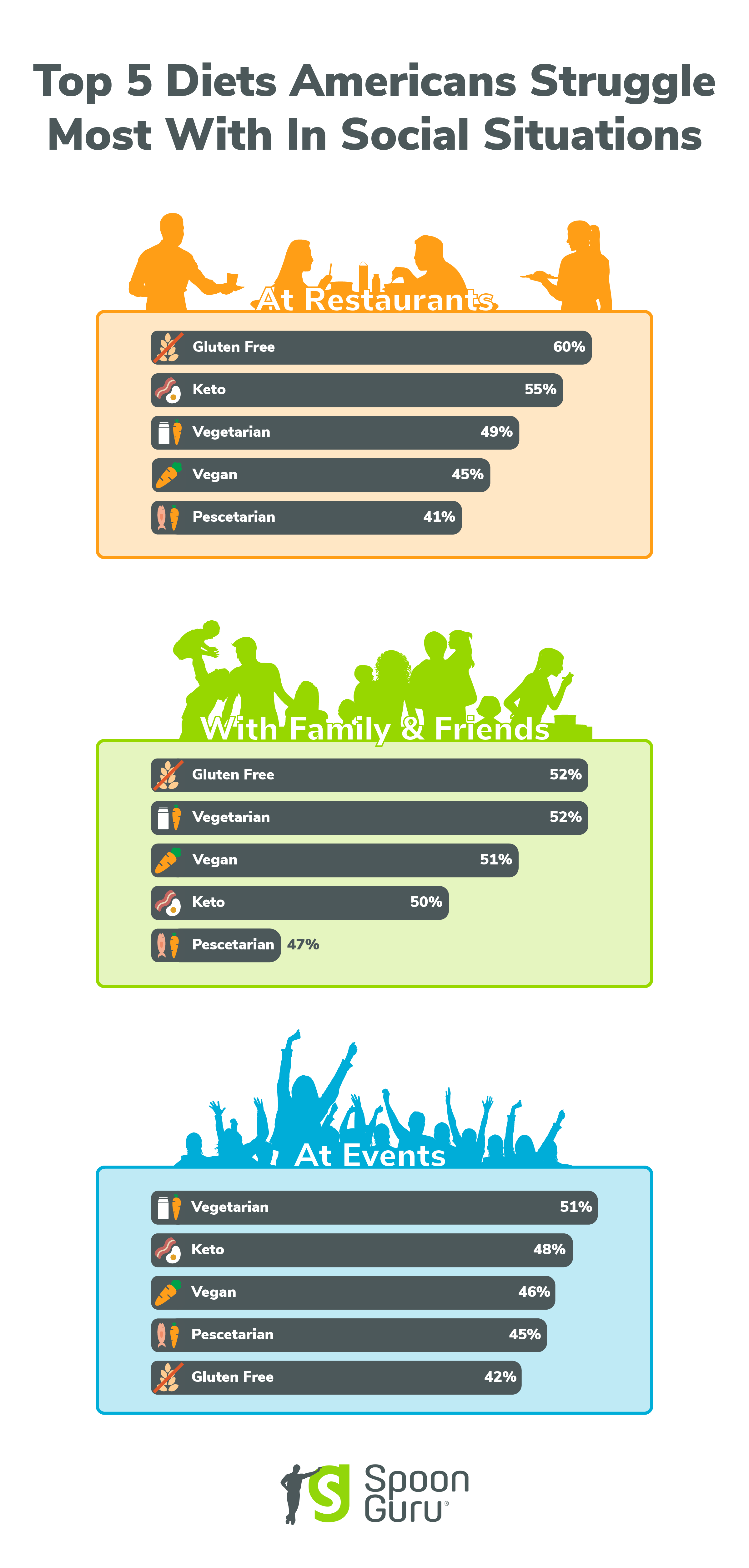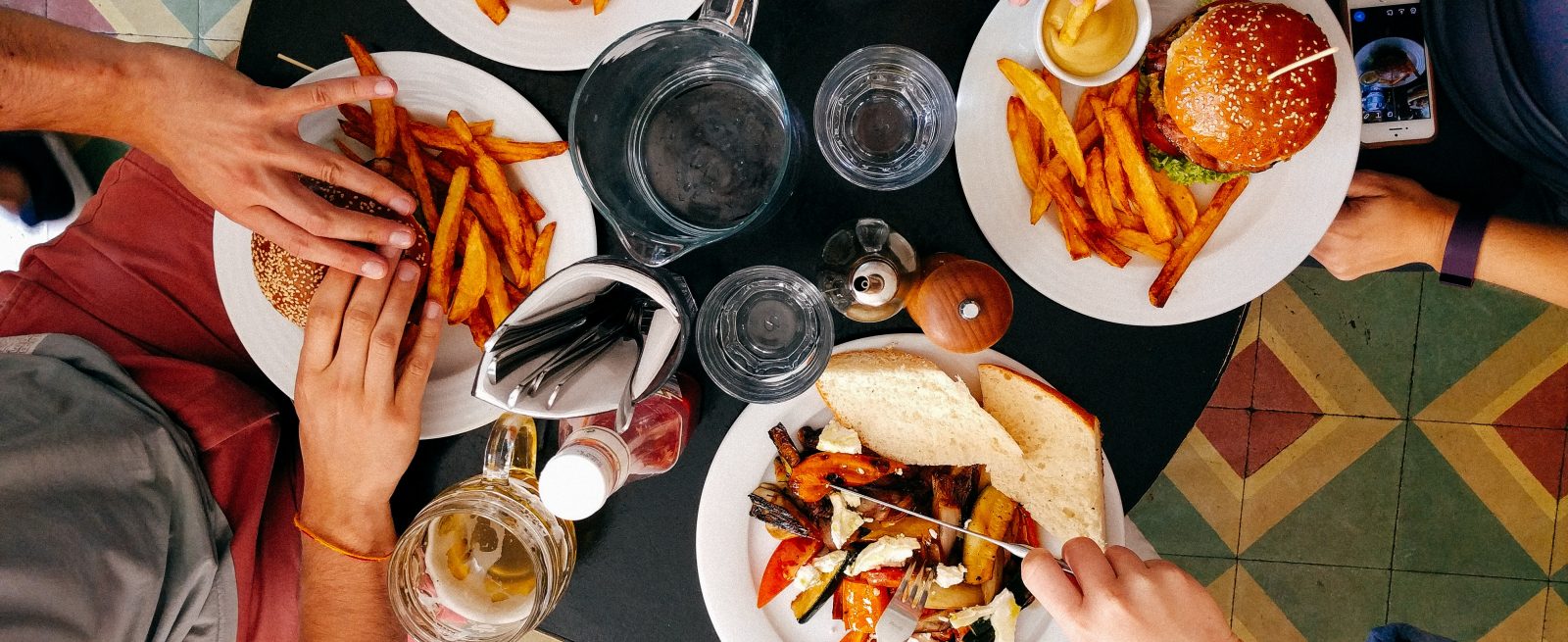Spoon Guru: Food Preferences Hinder Social Life (Infographic)
2 Min Read By Spoon Guru
New research commissioned by AI-powered food search and discovery platform Spoon Guru has found that almost half (47 percent) of Americans with exclusion diets struggle to manage their preferences when socializing at functions. The study revealed that people with food allergies, intolerances or those following a lifestyle diet shy away from events due to a fear their dietary needs will not be catered for. The data highlighted that consumers aged 45 to 54 find it the most difficult to dine at social events followed by the age range of 25 to 34.
Half of Americans with exclusion diets admit food preferences hinder their social life.
“The study found there is astounding support (86 percent) for the idea that retailers should go above and beyond the current regulations to give customers more clarity on ingredients. It’s also clear that hospitality staff need further training on the ever changing dietary landscape to make sure guests don’t feel alienated," said Markus Stripf, CEO and co-founder of Spoon Guru. “The great news is that both retailers and businesses in the hospitality industry are starting to adopt smart technology, so it won’t be long until food discovery becomes inclusive no matter whether the consumer has an allergy, suffers from an intolerance or is simply following a lifestyle diet.”
Among the findings:
● 61 percent of respondents believe having restrictive diets means they pay premium price for food
● Vegans and vegetarians face greatest challenge discovering food when grocery shopping
● Poor or non-existent food labeling the number one reason for purchasing or consuming food excluded from diet in the U.S.
Shockingly the survey unveiled that 41 percent of respondents believe they have been snubbed by restaurants because of their specific dietary needs. The poll found that almost half of men (48 percent) faced some form of prejudice whilst it was the experience of over a third of women (36 percent).
The study also revealed that more than half consumers (52 percent) battle to find food suitable for their requirements when eating out at restaurants. Meanwhile, it seems that Americans with exclusion diets also may fear meal time in the homes of their family or friends; 50 percent revealed that it can be challenging to have their dietary needs met when the food is served.
The research – which sought to identify consumer struggles when it comes to food shopping, discovery and consumption – found that 30 million US citizens with dietary requirements¹ accidentally consume food excluded from their diet on a weekly basis. Respondents (54 percent) named non-existent or poor product labeling as the number one reason why they purchased or consumed the wrong food. Waiter error was called out as the number two reason by 52 percent and personal error came in third (37 percent).
Interestingly, the data revealed that 61 percent of respondents believe that having a restrictive diet means they spend more money on food. Nearly two thirds of consumers (64 percent) agreed that they spend up to $50 more a month on food because of their preferences. And while grocery shopping is a mundane task for most, the survey found that vegan consumers (46 percent) have a particularly hard time when purchasing food online or instore, followed by vegetarians (39 percent), and consumers on gluten free diets (33 percent).



